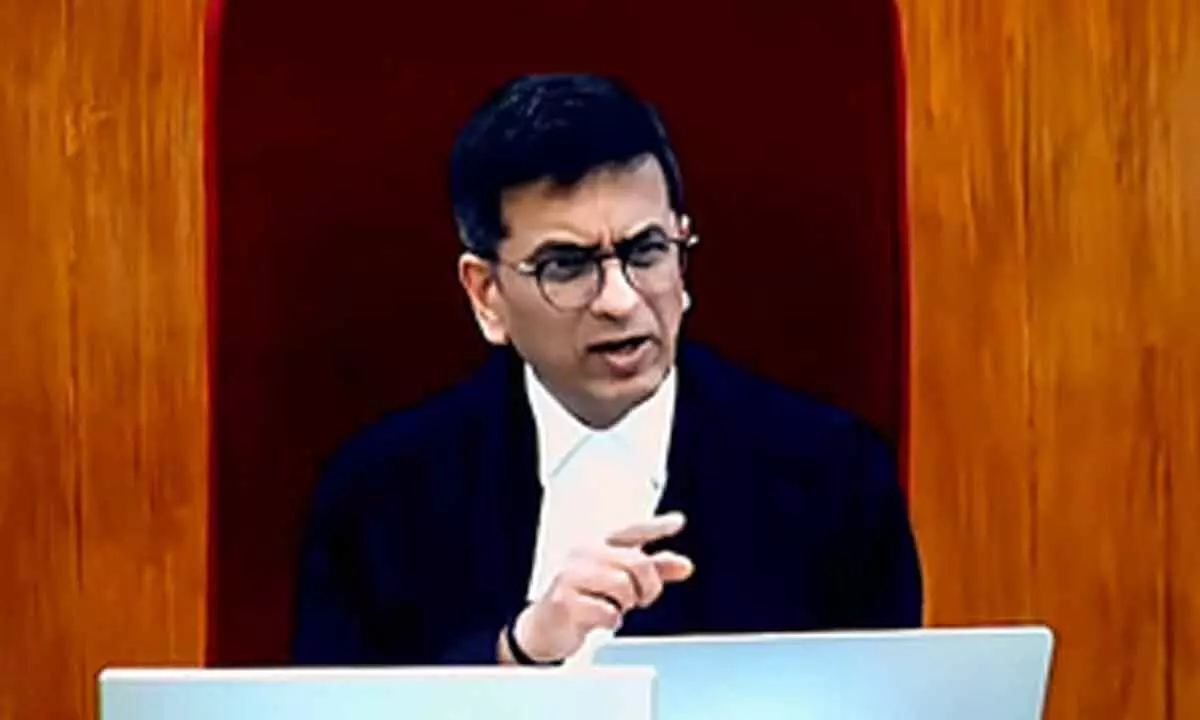Live
- Cyberabad police holds meet with hostel owners
- Guv read from Congress’ ‘lies-based’ script, flays BJP
- AP Assembly Budget Sessions: Key Discussions and Bills Set for Thursday
- Guv spoke like ‘Congress karyakarta’: KTR
- Governor’s address mirrors Rising Telangana: Congress
- RPF personnel assist woman to deliver safely at Sec’bad station
- VMRDA takes up two iconic projects in Vizag
- Chilkur priest meets former V-P Venkaiah Naidu
- CMR launches jewellery showroom in Eluru
- VPA celebrates Women’s Day
Supreme Court to examine PIL seeking implementation of Braille Integration System in currency notes

The Supreme Court on Tuesday agreed to examine a Public Interest Litigation (PIL) seeking directions for the implementation of the Braille Integration System across all domains of public and private sectors to assist visually impaired people.
New Delhi: The Supreme Court on Tuesday agreed to examine a Public Interest Litigation (PIL) seeking directions for the implementation of the Braille Integration System across all domains of public and private sectors to assist visually impaired people.
Issuing the notice, a Bench headed by CJI DY Chandrachud and comprising Justices JB Pardiwala and Manoj Misra sought the responses of the Centre and all state governments within a period of four weeks.
The plea filed through advocate Nishant Kumar specifically sought the implementation of the Braille Integration System in currency notes, product labels, public spaces, and education at all levels.
The PIL highlighted that the country is lagging behind other nations in providing visually impaired people adequate facilities to live life with dignity and equal opportunity even though the advent of braille and other supportive technologies have provided some succour against loss of vision.
Apart from the plethora of challenges faced by visually impaired people, they face difficulty in identifying currency notes, reading product labels and medicine management, navigating public places and accessing information, the plea said.
It added, “The current institutions/structures have discriminated against visually impaired persons by failing to implement the braille system in day-to-day activities and transactions. Such non-implementation puts such a class of persons at a significant disadvantage as they cannot access public services, facilities, and infrastructures on an equal basis with others.”
Further, the PIL said that the failure to recognise such indirect or hostile forms of discrimination against visually impaired people undermines the constitutional principles of equality, accessibility, and dignified life as enshrined under Article 14, 16, 19, and 21 of the Constitution.
According to the National Blindness and Visual Impairment Survey, almost 6.2 million people are blind in India and the prevalence of blindness varies by region and demography with rural areas having a 1.37 times higher rate than urban areas.
“The problem is not that someone is blind, but it is the society which is acting blind towards the needs and problems of such blind people,” the PIL said.

© 2025 Hyderabad Media House Limited/The Hans India. All rights reserved. Powered by hocalwire.com






